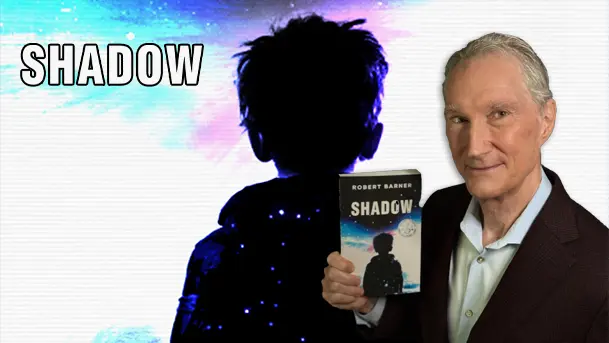Greetings, travelers. Our journey through the Otherworld today brings us through time and space to a version of Earth on the brink of destruction, twenty years from now. But through the eyes of an exceptional boy, readers will get to see magic unfold in a brilliant sci-fi setting. If that seems like it’ll be up your alley, you’ll love our interview with author Robert Barner. Read on to learn more.
Tellest: Hello there, Robert! First off, I wanted to thank you for carving some time out to share some of your stories with us. I know that you’re incredibly busy and that you’ve got plenty of irons in the fire, so to speak. I think that people will be eager to learn more about your fiction debut, Shadow, and I’m interested to learn about how it came to be created, and what led you here.
Robert Barner: Thanks, Michael. It’s a story I’ve been dying to share. My long-held belief is that science fiction offers us possible paths to very different futures, and sci-fi storytelling works when readers feel a visceral connection to those scenarios. That’s why I’m excited about sharing Shadow with your readers.
T: There’s a fundamental question that I like to lead with in every one of these interviews, because it helps to give context on how the storyteller ended up moving in that direction. What I’d like to know is what gave you direction to become a sci-fi tale spinner. When you were growing up, did you have a favorite author, or show or movie that lit a spark in your mind and had you wanting to explore this space? Or did you have a family member that helped to foster that sense of creativity?
RB: My first introduction to science fiction was the early works of Robert Heinlein. Later someone introduced me to Frank Herbert’s Dune, which opened up a new way for me to look at science fiction. I also grew up on Star Trek and Star Wars, which were also big influences on my writing. Finally, I had a unique childhood in that I grew up under the shadow of the US space program. My father worked at Cape Canaveral while my older brother worked at the Houston Space Center. Many of my friends also had parents who worked in the space program. All of this drove my passion for science fiction as an important literary genre.
T: That also gives you some fairly unique insight that a lot of sci-fi writers do not have. You were able to come close to what was likely cutting-edge technology at the time, and I’m sure that drove a sense of imagination like nothing else could have. Did you ever end up getting little hints at what the space program was working on, and did that ever make you wonder what was possible and what might come next?
RB: I knew only what the general public knew about the space program. But as to the other part of your question, yes, as a boy it was an incredible experience to grow up in an area where students were dismissed from class so they could run outside and see massive Saturn rockets blast off from the cape. Our whole family stayed up the night they broadcasted the moon landing. These early life experiences made me want to push the envelope in asking, “What is possible for humanity?”
T: Do you think that your peers growing up in that close proximity also had a penchant for science and technology because of how readily available it was to celebrate those important achievements? I don’t have any misconceptions that your school churned out an army of sci-fi storytellers, but do you think it struck inspiration in various things like science and technology?
RB: I haven’t tracked my old high school classmates so I don’t really know if they pursued science and technology. What I can say was that I believe this was one of the most optimistic time periods in US history—a time when we felt anything was possible.
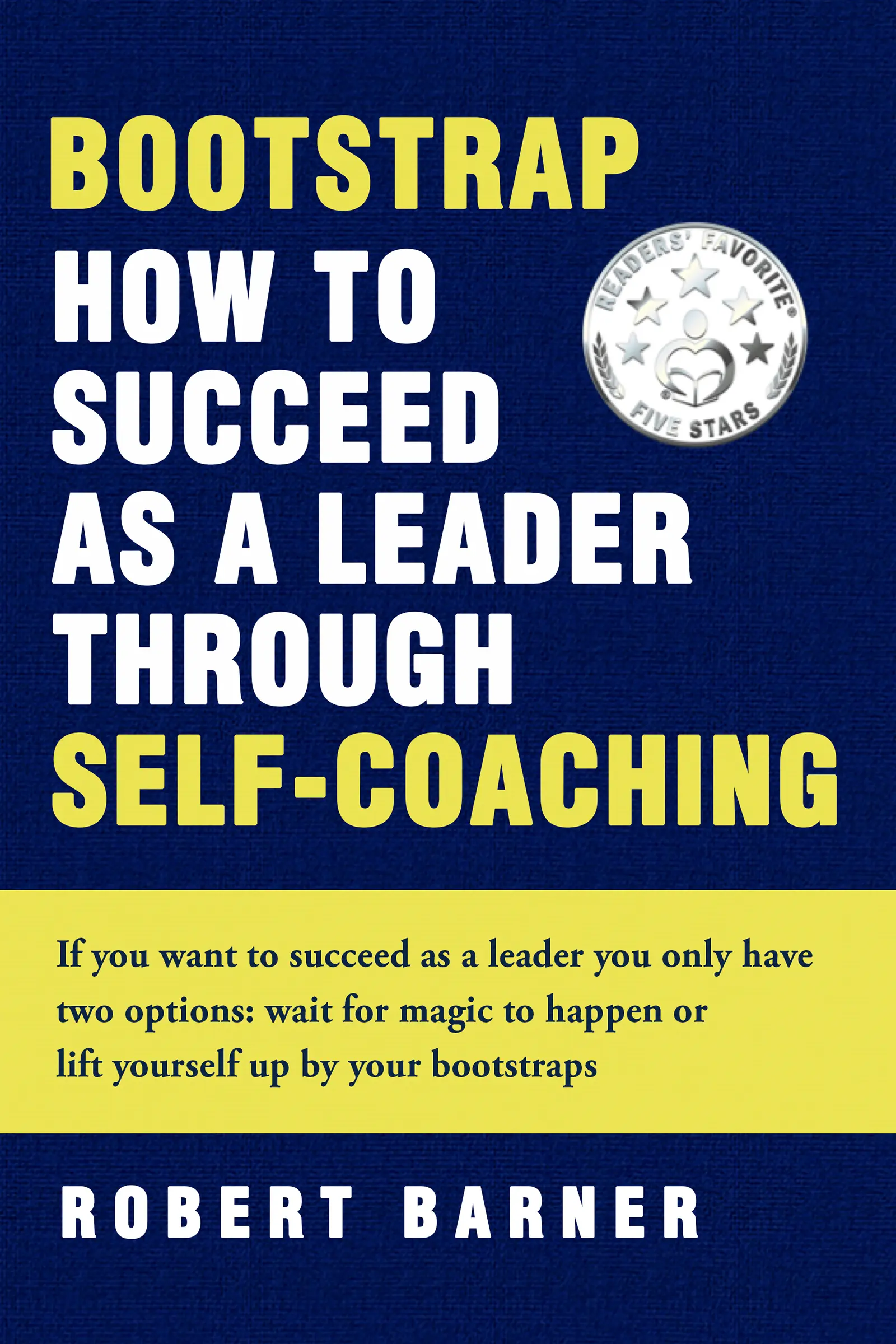
T: We’ll certainly be getting to your fiction debut, but I wanted to inquire about the things that you have much more experience in, and that’s non-fiction writing. You’ve got a pretty sizable catalog of books about bettering oneself, including several that focus on building leadership skills. What took you in that direction?
RB: Over the last thirty years I’ve written ten books on leadership and executive coaching. Some of these have been translated into German, Estonian, Norwegian, Mandarin and Farsi, for distribution in Europe, China, and the Middle East. What initially took me in this direction? The short answer is frustration. As a talent development leader and executive coach I’d frequently be looking for resources that could help me address certain leadership challenges. When I couldn’t find what I was looking for, I sometimes ended up writing my own book on the subject. Those books were based on the applied research that I’d reviewed, articles and book chapters I had written, and my own personal experience in eight different business sectors. For example, my most recent business book, Bootstrap: How to succeed as a Leader Through Self-coaching, evolved out of the fact that many leaders don’t have access to a professional coach. Bootstrap addresses this challenge by providing readers with a series of thought-providing questions, new leadership tools, case studies, and application exercises for tackling their toughest leadership challenges.
T: I would assume that this also helped you when it was time to turn the corner and move into more of the creative side of things. What were you able to apply from your leadership research and experience in order to begin making art?
RB: As a consultant and executive coach I’ve had to keep abreast of the newest changes in technology, such as AI and broader business trends. The topics on which I’ve read extensively include meditation & mindfulness, genetic engineering, consciousness and sentience, digital innovation, and neuroplasticity—the ability of the adult mind to continue to grow and evolve with learning. All of these reading areas inform my work as a fiction writer.
T: Beyond just informing your storytelling, with some of this, you’re able to apply it to the mechanical side of story craft as well. Have you leaned into any of it, whether it’s meditation before writing, using AI to help figure out outlines, or some other type of innovations or technology?
RB: I meditate and engage in yoga every day, and I’ve found that they’ve both been great for my health. I also encourage my coaching clients to spend at least a few minutes a day in meditation. It has helped them focus more effectively on their work and cope with stress; and let’s face it, we live in stressful times. On the AI side, several of my corporate clients are moving in this direction, and my consulting work deals with the human side of it. I don’t personally use AI in my craft for two reasons. First, I’m concerned that depending on AI would dull my creativity. Second, I’m very concerned that in the creative fields of writing, music, and the visual arts, AI poses the threat of robbing artists and writers of their creative works.
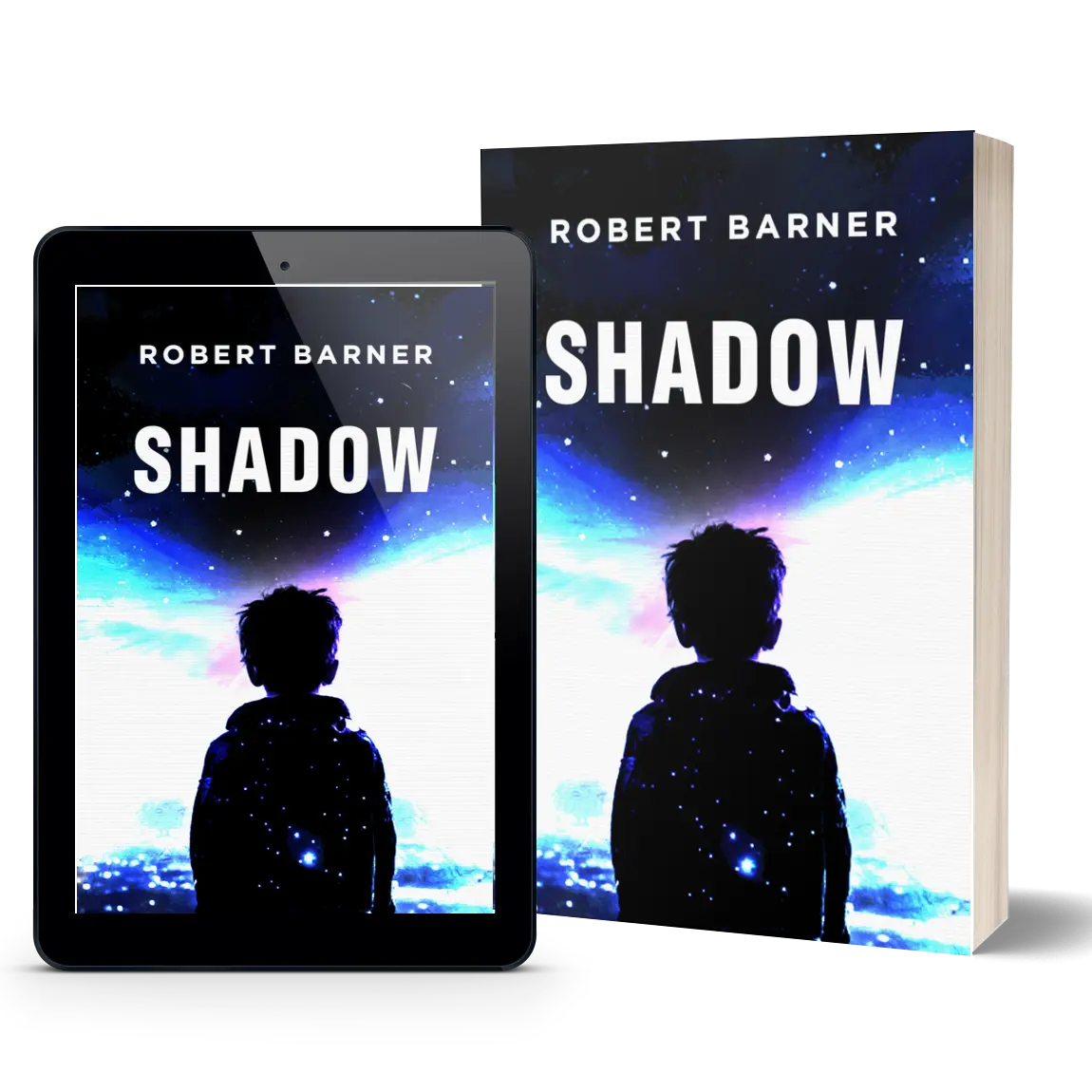
T: Now let’s get to Shadow: A Paranormal Suspense Thriller. How did the premise of this story come to be, and what was it about it that told you that you needed to write it? How did it become this thing that you had to pursue in order to make it your first published fiction book?
RB: The story takes place twenty years in the future, and it’s a probable future that has me quite concerned. First, I’m concerned that here in the US we are quickly moving towards a more authoritarian government, of the type that George Orwell warned us about in his book, 1984. Currently this trend is marked by such things as book banning, the insertion of religion into politics and education, the elimination of government reporting on such things as climate change, and the push to saturate public education with revisionist history. However, the future scenario that keeps me awake at night is the worldwide destruction of our environment—a scenario based on greed and the drive for limitless consumption. I’m wealthy enough to simply move to some quiet safe haven in another part of the world to avoid the immediate impact of such changes, but this is a coward’s response. I wanted to do something that could drive meaningful discussions on these two topics, and I thought the best way to do that was to create a protagonist who could show us this future world through their eyes. I choose as my protagonist, Bobby Haynes, a small, deeply introverted little boy who, near death’s door, survives by living inside the minds of others. My thought would be to present this future world from the perspective of a small child, as he strives to make sense of it.
T: One of the things that feels awful frightening, is that there is likely a point where we screw up the world so irrevocably that we aren’t suited to live on it anymore. The Earth will survive, but we may not. What did you make of Bill Gates recently taking a step back from climate warnings to focus instead on poverty and food resource messaging? Have we quietly missed our window to course correct on climate change, or is that simply managing the most necessary needs we have first?
RB: I think Bill misses the mark here, Michael. The issues of poverty and food resourcing are certainly important, but failure to fully address them won’t mean the death of the planet. On the other hand, once climate change gets bad enough, we humans will make life uninhabitable for most living species, and decrease our own chances of survival.
Quite frankly, we are beginning to see the first signs of that environmental cataclysm now. For those skeptics who are reading this I’d challenge you to follow the money. Home owners in much of California, Florida, and other states are being priced out of their homes because they can’t afford massive insurance price increases, due to wildfires and flooding. But let me share a more poignant example.
Tuvalu is a small island in the Pacific that is home to about ten thousand islanders. Their families have lived there for countless generations. The sad thing is that Tuvalu is now dying: rising ocean levels are causing it to quickly sink under the waves. In a few years, when their grandchildren ask, “Where did our family come from?” their only answer will be to point to an empty spot in the ocean, Realizing the hopelessness of the situation, the island’s residents have obtained approval from Australia to move there as a group. Meanwhile, the natives are taking photos and videos of everything on their island, including all plants and animals. That way, they will at least be able to electronically share the memories of their formal home with future generations. To the people of Tavalu, climate change isn’t a hoax. These poor folks are the canary in the coal mine when it comes to climate change.
T: You mentioned earlier that the climate changes that we’re making are going to ultimately lead to the death of the planet if we don’t do what’s necessary to stop things now. And while that perception isn’t entirely wrong, it won’t be the death of the planet—just the death of the planet as we know it. The Earth will survive these cataclysmic changes. We—along with thousands of other species—will just fail to adapt long enough to survive it.
Setting aside the doom we’d be introducing to these unwitting other species; how do you feel about our planet getting a fresh start without us acting like harmful parasites? Is there something poignant there, or is it deeply unsettling that we’re throwing away paradise in order for greedy billionaires to exploit the planet’s resources (and us)?
RB: There is a great story that circulated years ago about two famous American authors who had been invited to the party of a famous industrialist. One said jokingly to the other, “He makes more in a day than either of us makes in a year!” The other writer responded, “Yes, but I have something that he’ll never have.” “What’s that?” asked the first. “Enough,” said the second.
That succinctly describes our current ecological problem. We’ve been conditioned like Pavlov’s dogs to pursue endless consumption, with the most egregious cases being billionaires who have built hyper yachts for their own amusement. They are like high school kids playing a boasting game of “whose got the biggest one.” Social media is pushing us far in the area of FOMO, in that we find ourselves continually scrambling to acquire more for fear of missing out.
As to having the human race die out, of course I want our species to thrive, but we can’t do it by killing off everything in nature that is rare, beautiful, and fragile. Currently we’re seeing the collapse of bee populations, which doesn’t bode well for our food supplies. Scientists have performed autopsies on whales and dolphins, only to find massive amounts of plastics in their bodies, and recent studies have shown that elderly people with dementia have higher levels of microplastics in their brains. The Amazon, home to thirteen hundred bird species and 430 mammal species, is being decimated by the wholesale strip mining of the rainforest for farming and mining. In short, yes the Earth will survive. However, unless we make big changes it will be a far more desolate and degraded world that we pass on to our grandchildren. I, for one, feel that this would be a no-win scenario for the human race.
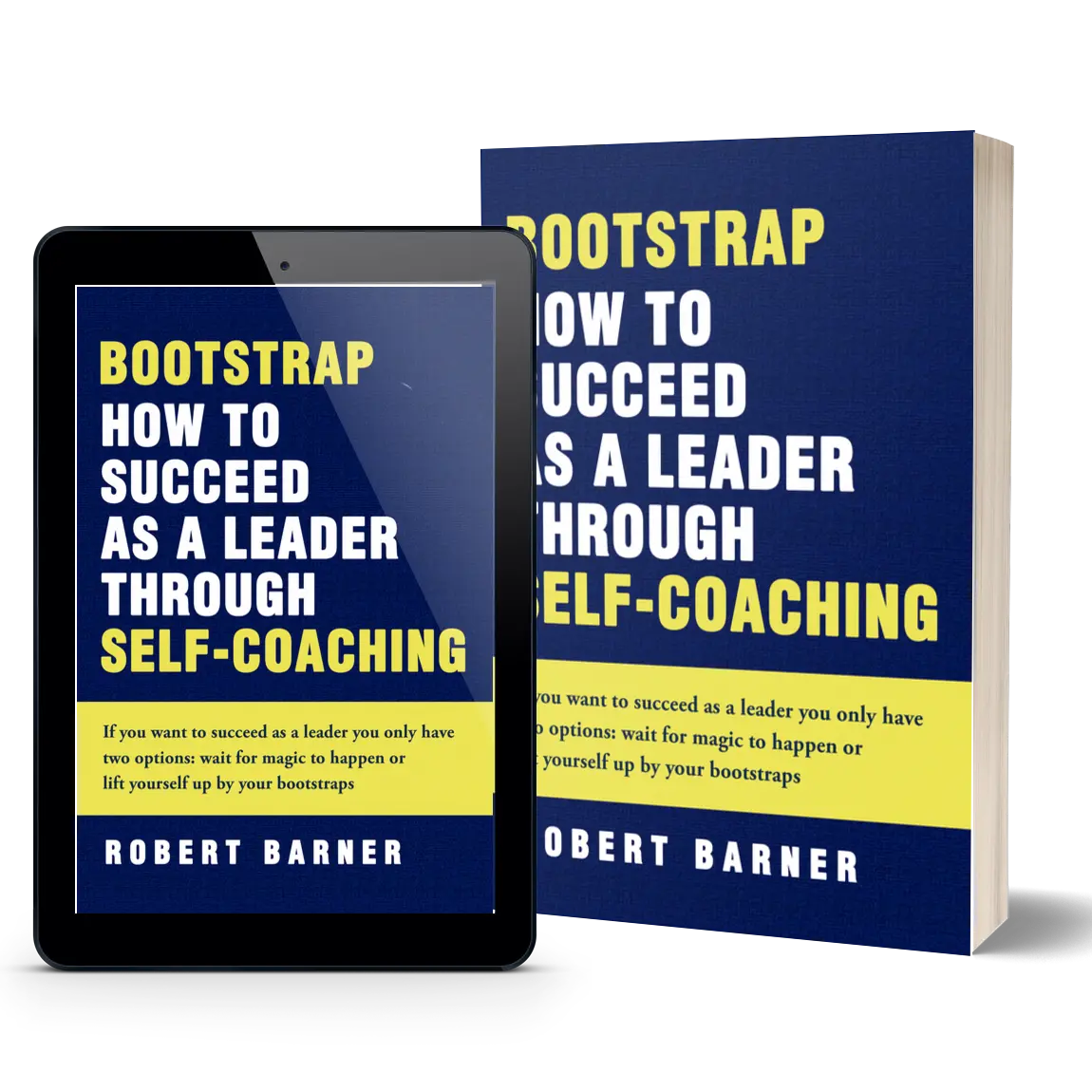
T: Bobby is essentially psychically linked to the people who he bonds with, meaning that he can see things from their perspective. It’s a slightly different way of presenting an omniscient point of view, and it has some great benefits from a storytelling standpoint. Could you explain the pros and cons of telling a story with this sort of protagonist, and whether you ran into any perplexing plot points because of it?
RB: That’s an excellent question, Michael. Some of my novels I’m writing are action adventures, and these I’ve written from the omniscient perspective, to allow readers to tap into the different thoughts of the main characters. However, for Shadow, I wanted use Bobby’s telepathy as a lever for going deeper into the human condition. As Bobby ages he begins to see how the kind words of those around him are often at odds with their thoughts and feelings. And when Bobby transforms into an incorporeal shadow, each of his hosts presents Bobby with a different perspective on life. These hosts range from a black lesbian FBI agent, to a kingpin of organized crime, to a frightened comatose young girl. With every new host he encounters, Bobby learns to look past outward appearances to understand the person underneath. It’s like that part in the novella, The Little Prince, when the wise fox tells the young boy, “It is only with the heart that one can see rightly; what is essential is invisible to the eye.”
T: You mentioned The Little Prince, by Antoine de Saint-Exupery, and while at first glance it might seem to have vast differences with what Shadow shares, they do connect by way of their exploration of human interpretation. Was The Little Prince an inspiration for your book, or did you just notice the similarities after the book had been written?
RB: The amazing thing about The Little Prince was that it was published in 1943, during the horrors of WWII, yet it captured the hearts of adults around the world. I didn’t read it until I was an adult. When I did, I was amazed that a story so simple and childlike could resonate with me at such a strong emotional level. I think the idea of ‘seeing behind the surface to what’s beneath’ stuck with me in that reading, and made its way into Shadow.
T: Shadow ended up being released just over a year ago, and the story ends on somewhat ambiguous terms. Do you see yourself writing more in this world? Did you enjoy your time in fiction, and do you think you’ll write other fiction stories as well?
RB: Michael, in answer to your first question, if Shadow were to take off I would happily write a sequel. As it is I’m currently working on three sci-fi book trilogies, and have completed the first two books in each series. The Heirs of Magick series centers on six children who are genetically enhanced at birth to have super-intelligence and paranormal abilities, The Accidental Wizard series focuses on an introverted computer geek who finds himself stumbling into the world of magic. Finally, the Janus series, is about a police officer who survives a brain trauma by having half a brain transplanted in from a scientist, not realizing that the donor’s brain is both AI-enhanced and still alive. So I think for now I have enough to keep me busy.
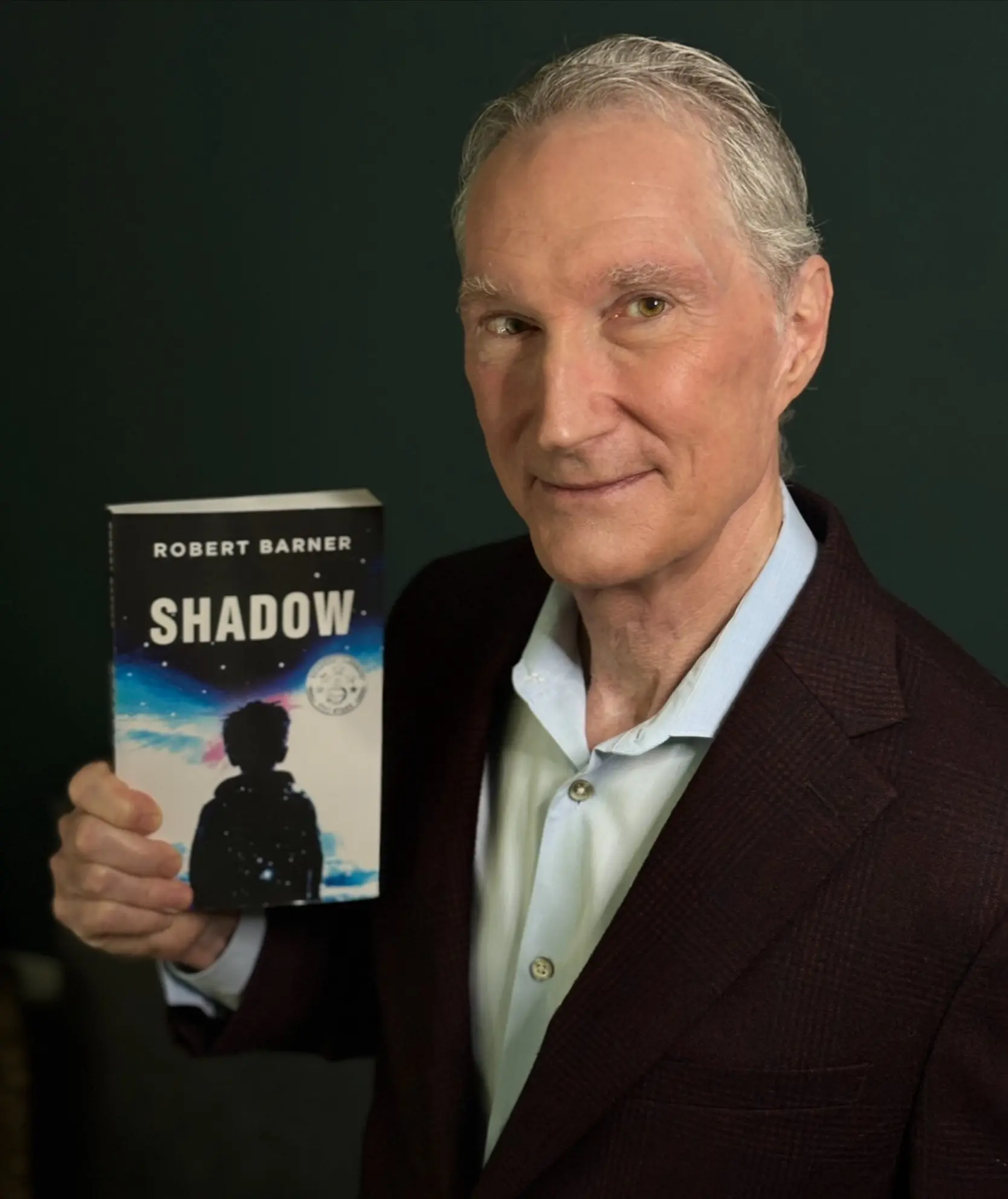
T: It seems so! For these other books that you’ve got on the runway, so to speak, do you have a timeline for release? Also, do you find it refreshing playing in a few different sandboxes as you explore these sci-fi themes?
RB: As far as my timeline goes, I’ll be starting with The Heirs of Magick as soon as I can find a publisher. The first book in this series has been completed and the second is almost finished. If I can’t find a publisher over the next six months I’ll self-publish. Either way, expect a release in mid-2026. Regarding your second question, my answer is a solid YES. I love to work on multiple projects simultaneously. I have ideas for five additional sci-fi and fantasy novels, and if I could clone myself I’d be working on all of them now.
T: A lot of looking for a publisher or an agent begins before even starting to put pen to paper. Writing to market is an incredibly important tool in a storyteller’s belt, but it’s not always what is important to an author. Where do you think you land on the spectrum of writing to market and writing for yourself? Does it differ depending on the book you’re working on?
RB: Obviously I would love my novels to be commercial successes, however for me, writing is more of a craft than an income stream. I make a lot of money as an executive coach and consultant. If making more money was my primary goal I’d stop writing and just do consulting. But if I can reach just a few readers who feel that my writing has taken them on a stimulating journey, perhaps teaching them something along the way, I will die a happy man. In short, I love writing, and breathing life into new worlds and new sets of characters.
T: Fiction and non-fiction books are understandably different. What were some of the things that surprised you when you were moving from the books you were familiar with to a story that came from within your imagination?
RB: There are two things. First, it was humbling to realize that the writing chops I had developed as a non-fiction writer didn’t translate well into fiction. There was a period where I struggled to develop a writing style that was less academic and more engaging. Also, I never had difficulty getting my business books in front of publishers, because I could offer them a good platform for marketing (speaking engagements, university instruction, the workshops I ran, etc.) As a fiction writer, the big challenge I face is getting past all the noise out there to draw the attention of a publisher, while building a readership base. With all of the AI slop that is now flooding the market, that challenge has become more formidable.
T: Do you think that AI is going to become more of a hurdle for authors to get over, or do you see more people becoming aware of the difference between AI-generated works and ones that were more painstakingly created by a human?
RB: Ugh! I’m going to predict that within five years it will be almost impossible to determine if a work is driven by AI or humans. The problem here is that large language models base their decisions on the information they’ve been fed, so as part of their training they often scrape data off of copyrighted sources. The ultimate horror story for a writer would be to read a new novel and then, part way through, get that queasy feeling that says, “Wait a minute! This reminds me a lot of what I wrote in…” On top of that, true authors will be competing with what I call “cattle farmers.” These are hack ‘authors’ who use AI to generate tons of books, load them all on Amazon at low prices, then sit back and watch their literary annuity bear fruit.
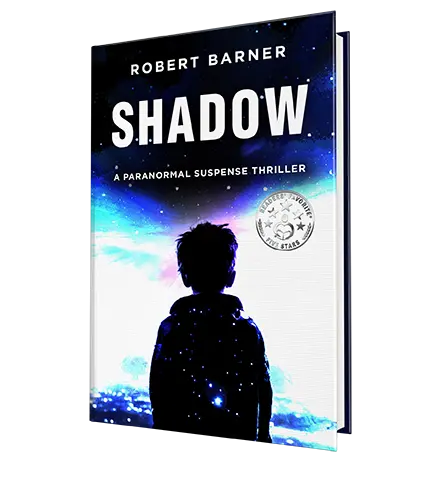
T: Hand in hand with that, we’re at a point right now where most AI content is…perhaps to some extent technically good—it strings along syntax that sounds pleasing—but it’s decidedly not attractive in its complete package. At least where writing is concerned. But I think you could easily point to how far generative art has come and start to make sense of where we’re coming from to where we’re going as it pertains to storytelling. Someday, we’re going to have a more viscerally emotional response to something AI writes. It’s going to feel profound and powerful. Does it almost feel like artificial satisfaction to get that kind of rush from something that didn’t come from a human’s mind?
RB: That depends. If the AI is simply an LLM, or large language model, then it will simply grind up and spit out human work in different ways. That isn’t very appealing to me. However, if we ever truly reach the stage of AGI, or Artificial General Intelligence, then by definition we’d be dealing with a nonbiological entity that is truly sentient and self-aware, and THAT might prove us with a totally new perspective on literature. It might even force us to a deeper self-examination of ourselves as a species.
T: Beyond trying to help people build leadership skills, you’re also a huge proponent for finding positivity even when it seems that things are at their direst. What are some of your best bits of advice for people who are looking for those glimmers of hope when things are looking bleak?
RB: I’ll mention four pieces of advice here, but others can be found in my self-help book, The Transformational Journey: Finding your path to personal transformation and self-renewal. My first suggestion is to cut negative people out of your life. If you have a friend who is a David or Debby Downer—whose conversation always dwells on the negative—limit the time you spend with them. In the same way, limit your doom scrolling. The major social media groups capture our attention by feeding us negative news that has been sensationalized for greater impact. Unfortunately, studies show there is a direct correlation between the amount of time people spend scrolling on their phones, and how depressed or anxious they feel. If you do go online, look for the positive stories (they are out there), then provide a daily uplift to your friends by sharing them. Third, take up a practice of daily meditation. I spend 30 minutes on this each day. After each session I when I check my Apple watch I note that my heartrate has dropped from around 70-75 to the mid-50s. Finally, make a list of those small things that bring you joy and schedule them into your daily calendar. If you don’t, they will always be pushed to the back of the line by your daily routines.
T: Those are very helpful pieces of advice! Thank you, Robert!
T: As more fans of your story find their way to you, they’re going to want to be able to find out about the next project that is coming from Robert Barner. Where would you recommend readers go to find more information about you and your projects? Do you have a website or social media that you would direct them to?
RB: I’m on Linked In and also have a website, rbarnerauthor.com, where they can find more information on Bootstrap and Shadow. As I prepare to launch my first book series I will also be including that information on my site. Finally, if your readers Google the words “Robert Barner Amazon Author Page” they will find a complete listing of the books I’ve written.
T: Robert, I wanted to thank you again for sharing some of your time with me and with your readers by joining me for this interview. It was a great deal of fun to get to learn more about you and your process, where you came from, and where you anticipate going as you continue your storytelling journey. It’s always great to check in with an artist who is well on their way. I’m excited for more readers and fans to find their way to you, and to get their hands on books like Shadow.
RB: Thanks, Michael. I really enjoyed the interview. You’ve asked a lot of probing and insightful questions, and that’s the type of interaction that makes me more reflective of my own work. Thank you for that!
T: One more time, I’d like to thank Robert for sharing his time. It always feels like a great opportunity when we can draw back the curtains a bit and see how talented authors tick, and to learn more about their foundational journeys that led them to where they are. It’s also exciting to consider where they’ll soon go. While we wait for the future though, don’t forget the now. Check out Shadow: A Paranormal Suspense Thriller on Amazon today!
You can also check out some more media Robert provided for us below.
Michael DeAngelo
Latest posts by Michael DeAngelo (see all)
- Interview with Shaun S. Fitzgerald - February 26, 2026
- Sci-Fi Promo – No Hurt - February 20, 2026
- Horror Promo – Alone Together - February 19, 2026
